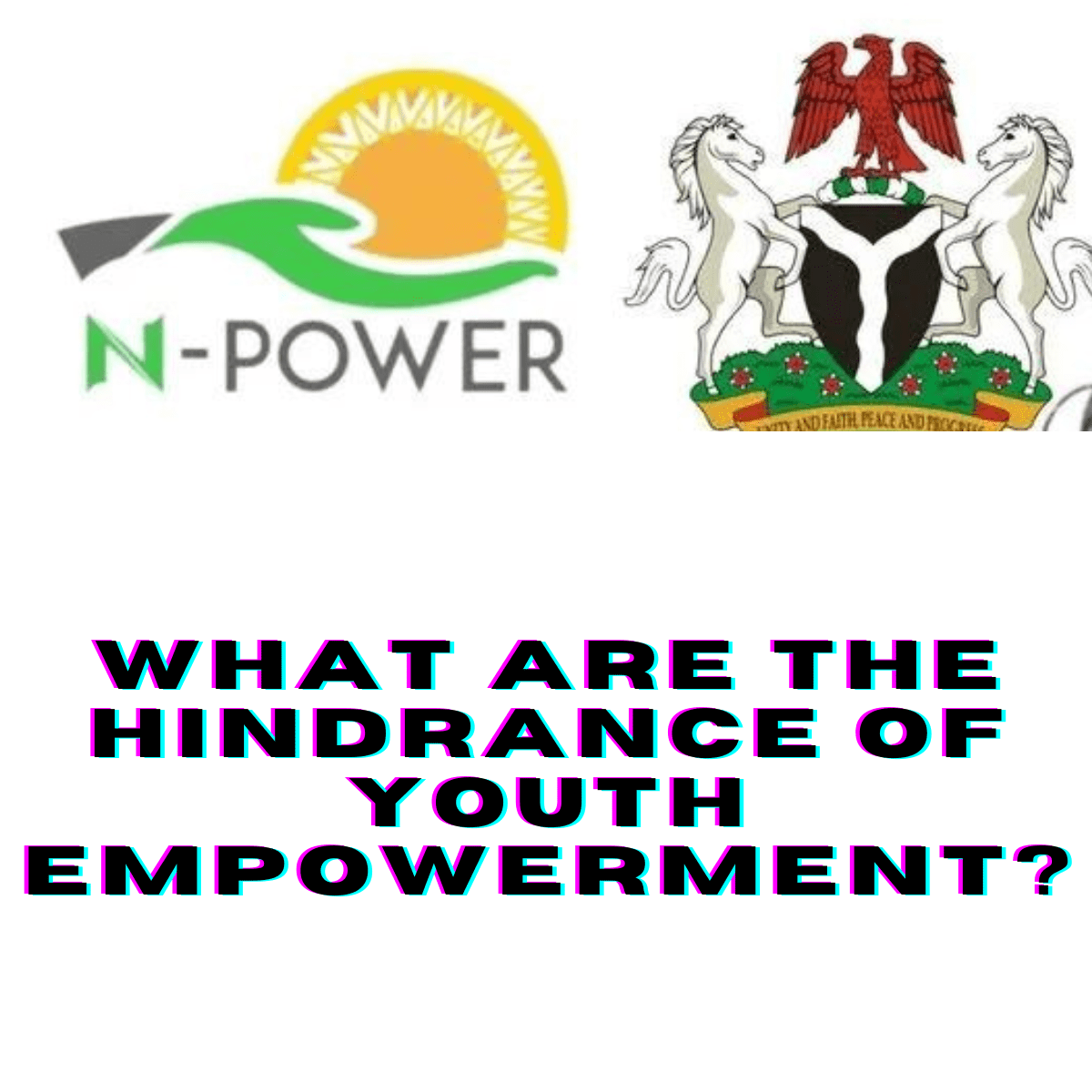Youth empowerment has become a crucial agenda globally, recognizing the pivotal role young people play in societal development. In Nigeria, a country with a significant young population, empowering this demographic is not just beneficial but necessary for national progress. Despite the evident need for youth empowerment, various obstacles persist, hindering effective implementation and realization of its full potential. This article delves into these hindrances, exploring their roots and implications, while also suggesting viable solutions to overcome them. As we embark on this journey, let’s unravel the complexities that stand in the way of empowering Nigerian youths, ensuring a brighter future for the nation.
Deep Dive into the Hindrances
The journey towards youth empowerment in Nigeria is fraught with challenges that span socio-economic, political, and cultural spheres. Understanding these obstacles is the first step towards devising effective strategies to mitigate them.
Socio-Economic Barriers
Limited Access to Quality Education: Education is the bedrock of empowerment. However, many Nigerian youths face barriers to accessing quality education due to financial constraints, inadequate educational facilities, and outdated curricula that do not align with current market demands. How can a nation empower its youth when the very foundation meant to build their capacities is shaky?
Unemployment and Underemployment: With a burgeoning youth population, the Nigerian labor market is strained, leading to high rates of unemployment and underemployment. Young people are often the most affected, finding it difficult to secure jobs that match their skills and aspirations. This not only dampens their economic potential but also their morale and drive towards self-improvement.
Political and Institutional Limitations
Inadequate Government Policies and Support: While there are policies aimed at youth development, the implementation often falls short. Lack of coordination among government agencies, insufficient funding, and corruption hinder the effectiveness of these policies, leaving many initiatives on paper rather than in practice.
Limited Participation in Governance: Youth representation in political and decision-making processes is minimal. This exclusion means that the needs and interests of young people are often overlooked or inadequately addressed in national policies and programs.
Cultural Constraints
Gender Inequality: Cultural norms and practices in some Nigerian communities place women at a disadvantage, limiting their access to education, economic opportunities, and participation in public life. Gender-based discrimination is a significant barrier to empowering all youths, particularly young women.
Resistance to Change: In some instances, there is a generational resistance to new ideas and innovations brought forward by the youth. This resistance can stifle creativity and discourage young people from pursuing entrepreneurial or unconventional career paths.
Solutions and Strategies for Overcoming Hindrances
Addressing these hindrances requires a multi-faceted approach that involves government action, community support, and individual initiative.
Enhancing Education: Improving access to quality education should be a priority. This includes investing in educational infrastructure, revising curricula to meet modern standards, and providing financial support to students from low-income families.
Creating Employment Opportunities: The government and private sector must collaborate to create job opportunities for young people. This could involve incentivizing businesses to hire young graduates, supporting entrepreneurship through grants and mentorship programs, and developing sectors that have the potential to employ large numbers of youths.
Involving Youths in Governance: Encouraging the participation of young people in political processes and decision-making can ensure that their interests are adequately represented. This can be achieved through youth quotas in government positions and involving youth organizations in policy discussions.
Addressing Gender Inequality: Promoting gender equality is crucial. This involves educating communities about the importance of women’s empowerment, enacting and enforcing laws against gender-based discrimination, and supporting initiatives that empower young women.
Encouraging Cultural Shifts: There needs to be a cultural shift towards valuing and embracing the contributions of the youth. This includes challenging stereotypes, promoting intergenerational dialogue, and celebrating innovation and creativity.
Engaging with the Readers
Have you experienced or observed any of these hindrances in your journey towards empowerment? How do you believe we can collectively overcome these obstacles? Your insights and stories are invaluable as we navigate this complex terrain together. Let’s engage in a meaningful conversation below to share experiences and solutions that can pave the way for a brighter, more empowered future for Nigerian youths.
FAQs on Hindrances of Youth Empowerment
Q: Why is youth empowerment important in Nigeria? A: Youth empowerment is crucial for leveraging the demographic dividend, fostering economic growth, and ensuring social stability in Nigeria. Empowered youths can contribute significantly to innovation, governance, and development processes.
Q: How can the government improve youth empowerment? A: The government can improve youth empowerment by implementing effective policies, increasing funding for youth-focused programs, ensuring transparency and accountability in governance, and facilitating youth participation in decision-making processes.
Q: What role do private organizations play in youth empowerment? A: Private organizations can play a pivotal role by providing employment opportunities, supporting skill development programs, investing in youth-led startups, and partnering with government agencies to implement empowerment initiatives.
Youth empowerment in Nigeria faces numerous hindrances, but with targeted efforts and collective action, these obstacles can be overcome. It is crucial for all stakeholders to collaborate in creating an enabling environment that fosters the growth and development of young people. As we work towards this goal, we must remember that empowering the youth is not just an investment in individuals, but in the future of Nigeria itself.
